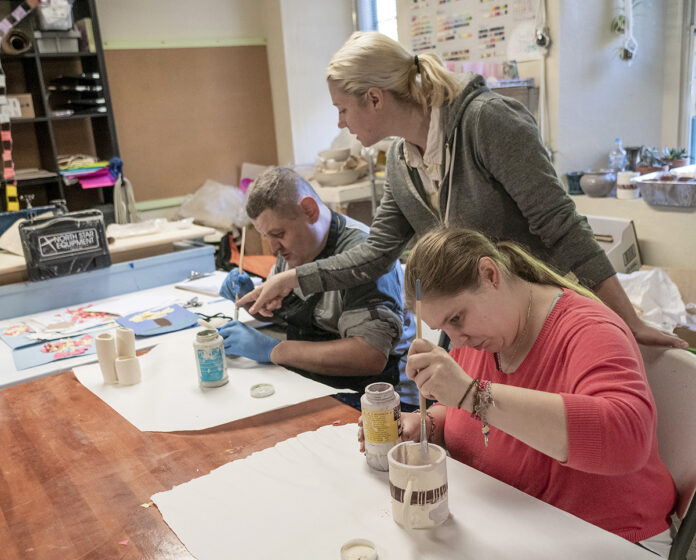AN ESTIMATED 1 in 59 U.S. children are currently diagnosed with being on the autism spectrum, people with an array of challenges in social and communication skills, including limited speech – sometimes no speech at all. However, a local organization for more than 40 years has been offering innovative therapies and programs to help those impacted by the disorder and their families lead a healthy life.
The Groden Network, which includes The Groden Center – three offices in Providence, Coventry and Pawtucket – The Cove Center Inc. in Providence and The Halcyon Center in Attleboro, treats on an individual basis both children and adults who have been diagnosed with varying conditions on the autism spectrum. Founded in 1976, June and the late Gerald Groden developed a program to target not just the behavioral challenges associated with autism but also conceive it as a “stressful situation,” according to Cooper Woodard, the network’s chief clinical officer.
“Giving students ways to cope with stress was a kind of a foundational part of the program,” Woodard said.
Groden staff implements adaptive relaxation techniques, sometimes breathing techniques, to help students cope through a stressful situation that can be triggered by sensory sensitivity, lights, or being within a crowd of people, Woodard said. Staff also uses a “stress schedule” to help identify what stresses impact which students, and how severe they are stressed by that situation considering that the severity of autism can vary from high-functioning individuals (Asperger’s syndrome) to severe, in which people are nonverbal.
Groden Network Early Intervention Program Clinical Director Leslie Weidenman said most children are diagnosed with autism between ages 2 and 4, with the prominent symptom being that a child is not talking or is displaying “unusual behaviors.” From there, Groden staff starts evaluating the condition and seeking out the proper areas and programs for child development.
The organization also offers programs for adults who are on the spectrum. Among them are social-skills groups for students learning how to socialize and an employment program for those who have mid- to high-functioning autism. Weidenman said Groden helps students role-play through a job interview and works with nurseries, car repair shops and other businesses to help clients gain employment.
“The employment aspect of the adult program is very important because they will use an individualized approach to offer support needed for the adult who is seeking the job and try to have the person as independent as possible,” she said.












